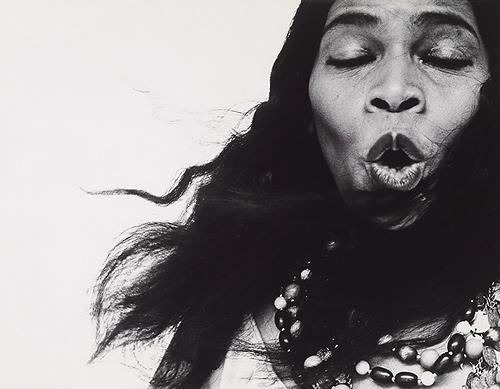Marian Anderson (Singer/Equal Rights Campaigner)
 Marian Anderson (February 27, 1897 – April 8, 1993) was an American contralto and one of the most celebrated singers of the twentieth century. Music critic Alan Blyth said "Her voice was a rich, vibrant contralto of intrinsic beauty."
Marian Anderson (February 27, 1897 – April 8, 1993) was an American contralto and one of the most celebrated singers of the twentieth century. Music critic Alan Blyth said "Her voice was a rich, vibrant contralto of intrinsic beauty."
Most of her singing career was spent performing in concert and recital in major music venues and with major orchestras throughout the United States and Europe between 1925 and 1965.
Although she was offered contracts to perform roles with many important European opera companies, Anderson declined all of these, preferring to perform in concert and recital only.
She did, however, perform opera arias within her concerts and recitals.
She made many recordings that reflected her broad performance
repertoire of everything from concert literature to lieder to opera to
traditional American songs and spirituals.
An African-American, Anderson became an important figure in the struggle for black artists to overcome racial prejudice in the United States during the mid twentieth century. In 1939, the Daughters of the American Revolution (DAR) refused permission for Anderson to sing to an integrated audience in Constitution Hall.
Their race-driven refusal placed Anderson into the spotlight of the international community on a level usually only found by high profile celebrities and politicians. With the aid of President Franklin D. Roosevelt and First Lady Eleanor Roosevelt, Anderson performed a critically acclaimed open-air concert on Easter Sunday, in 1939 on the steps of the Lincoln Memorial in Washington, D.C. to a crowd of more than 75,000 people and a radio audience in the millions.
Here's a clip from that performance:
She continued to break barriers for black artists in the United States, notably becoming the first black person, American or otherwise, to perform at the Metropolitan Opera in New York City on January 7, 1955. Her performance as Ulrica in Giuseppe Verdi's Un ballo in maschera at the Met was the only time she sang an opera role on stage.
Anderson later became an important symbol of grace and beauty during the civil rights movement in the 1960s, notably singing at the March on Washington for Jobs and Freedom in 1963. She also worked for several years as a delegate to the United Nations Human Rights Committee and as a "goodwill ambassadress" for the United States Department of State.
The recipient of numerous awards and honors, Anderson was notably awarded the Presidential Medal of Freedom in 1963, the Kennedy Center Honors in 1978, the National Medal of Arts in 1986, and a Grammy Lifetime Achievement Award in 1991.
Related Links:
Marian Anderson on Wikipedia
The Marian Anderson Historical Society
An African-American, Anderson became an important figure in the struggle for black artists to overcome racial prejudice in the United States during the mid twentieth century. In 1939, the Daughters of the American Revolution (DAR) refused permission for Anderson to sing to an integrated audience in Constitution Hall.
Their race-driven refusal placed Anderson into the spotlight of the international community on a level usually only found by high profile celebrities and politicians. With the aid of President Franklin D. Roosevelt and First Lady Eleanor Roosevelt, Anderson performed a critically acclaimed open-air concert on Easter Sunday, in 1939 on the steps of the Lincoln Memorial in Washington, D.C. to a crowd of more than 75,000 people and a radio audience in the millions.
Here's a clip from that performance:
She continued to break barriers for black artists in the United States, notably becoming the first black person, American or otherwise, to perform at the Metropolitan Opera in New York City on January 7, 1955. Her performance as Ulrica in Giuseppe Verdi's Un ballo in maschera at the Met was the only time she sang an opera role on stage.
Anderson later became an important symbol of grace and beauty during the civil rights movement in the 1960s, notably singing at the March on Washington for Jobs and Freedom in 1963. She also worked for several years as a delegate to the United Nations Human Rights Committee and as a "goodwill ambassadress" for the United States Department of State.
The recipient of numerous awards and honors, Anderson was notably awarded the Presidential Medal of Freedom in 1963, the Kennedy Center Honors in 1978, the National Medal of Arts in 1986, and a Grammy Lifetime Achievement Award in 1991.
Related Links:
Marian Anderson on Wikipedia
The Marian Anderson Historical Society